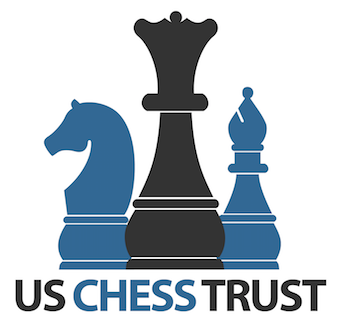Why Chess? by Dr. Peter Dauvergne

WHY CHESS?
Based on The Case for Chess as a Tool to Develop Our Childrens Minds, given in 2000 by Dr. Peter Dauvergne
Chess is one of the most powerful educational tools available to strengthen a childs mind.
Chess can enhance concentration, patience and perseverance as well as develop creativity, intuition, memory and, the ability to analyze and deduce from a set of general principles while learning to make tough decisions and solve problems flexibly.
Playing chess requires intense concentration. For young players, chess teaches the rewards of concentration and provides immediate penalties for concentration lapses. Few teaching tools provide such quick feedback.
A slip in concentration can lead to a simple blunder, perhaps even ending the game.
Only a focused, patient and persistent child will maintain steady results characteristics that are equally valuable for performing well at school, especially on school exams.
The Internet, email and computers are rapidly changing the skills essential to succeed at school and work.
As globalization accelerates, information is pouring in faster and faster.
Information that took months to track down a few years ago can now spin off the Internet in just seconds.
With such easy access and tremendous volumes, the ability to choose effectively among a wide variety of options is ever more vital.
Students increasingly must be able to respond in a flexible and critical manner. They must be able to wade through and synthesize vast amounts of information, not just memorize chunks of it. They must learn to recognize what is relevant and what is irrelevant. They also must acquire the skills needed to learn new technologies quickly as well as solve a continual stream of problems with these new technologies.
This is where chess as a tool to develop the minds of children appears to be especially powerful.
By its very nature, chess presents an ever-changing set of problems.
Except for the very beginning of the game, where it is possible to memorize opening moves, each move creates a new position. For each of these, a player tries to find the move by calculating ahead , evaluating these future possibilities using a set of theoretical principles.
Importantly, more than one move may exist, just as in the real world more than one option may exist. Players must learn to decide, even when the answer is ambiguous or difficult.
These thinking skills are becoming ever more valuable for primary and secondary school students as they continually are confronted with new everyday problems.
If these students go on to college, it will be especially imperative to understand how to apply broad principles to assess new situations critically, rather than relying on absorbing a large number of answers.
Chess is an especially effective teaching tool.
It can equally challenge the minds of girls and boys, gifted and average students, athletic and non-athletic, rich and poor.
It can teach children the importance of planning and the consequences of decisions. It can teach how to win and lose gracefully, how to think logically and efficiently and how to make tough and abstract decisions.
Chess also can build confidence and self-esteem without over-inflating egos, as some losses are inevitable, even for world champions. Chess potentially can help teach underachieving children how to study, perhaps even leaving them with a passion for learning.
Chess tournaments, which usually involve clocks to limit the total time each player can use, are a good way to provide practice at making fast and accurate decisions under pressure a skill that can help students cope with a similar pressure during schools exams.
Participating in tournament play also is a fun way to practice how to put the mind into high gear to demonstrate that intense concentration increases alertness, efficiency of thought processes and, ultimately, mental performance.
Most importantly, perhaps, chess is an effective way to teach children how to think and solve an ever-changing and diverse array of difficult problems.
With millions of possibilities in every game, players continually must face new positions and new problems.
They cannot solve these by using a simple formula or relying on memorized answers. Instead, they must analyze and calculate, relying on general principles and patterns along with a dose of creativity and originality skills that increasingly mirror what students must confront in their everyday schoolwork.
About Dr. Peter Dauvergner
Peter Dauvergne’s research focuses on critical global change theory and environmental theory in international relations. He also has subfield interests in the international political economy of sustainable development and the politics of environmental management in the Asia-Pacific.
He is currently completing the books, The Ecological Shadows of Consumption (under contract with the MIT Press) and The Historical Dictionary of Environmentalism (under contract with Scarecrow Press).
He is a member of the Publications Board of the UBC Press and the founding and current editor of the MIT journal Global Environmental Politics.


toni ziffer
says:Why Chess? The article is brilliant for all teachers and parents. Thank you for writing about chess, the benefit it gives and the importance of learning.